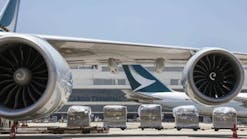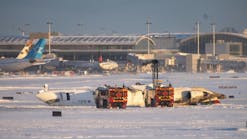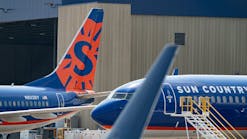Airlines are eager to fly internationally again as soon as bilateral agreements between countries with low coronavirus risk are settled, as the aviation industry continues to struggle with unprecedented financial stagnation.
Santisuk Klongchaiya, chief executive of Thai AirAsia (TAA), said the airline is ready to resume international flights once "travel bubbles" are successfully created and the Civil Aviation Authority of Thailand (CAAT) gives its stamp of approval to let international flights resume.
He said he agrees with the government's plan to stimulate domestic travel to kick-start the overall economy.
TAA is planning to add more routes to leisure destinations after the airline resumed four flights a day from Bangkok to Phuket yesterday.
"Most travel now is for business purposes," Mr Santisuk said. "When the leisure market comes back at a faster speed in July, we will offer special airfares to respond to upcoming demand and to compete with other airlines."
TAA aims to carry 11 million passengers this year, a massive reduction from 22.15 million in 2019.
In May, TAA's load factor closed at 80% from 120-seat capacity under social distancing practices. The airline operated at 15% of total capacity with up to seven aircraft.
When the airline added more flights this month, more jets from its 60-aircraft fleet were used. At present, TAA operates with 30% of the entire fleet or about 15 aircraft and expects to increase capacity to 35% of the fleet in July.
On the subject of long-awaited soft loans, Mr Santisuk said that while TAA's liquidity is sufficient, state financial aid would help support operations.
Nadda Buranasiri, chief executive of the AirAsia X group and Thai AirAsia X, said operators have a clearer idea of how to resume international flights after meeting with the CAAT.
Mr Nadda said one of the new regulations is to leave the last three rows of seats empty in order to contain passengers with symptoms.
The CAAT expects the number of passengers this year to drop by 70% year-on-year compared with 165 million passengers last year, mainly due to the outbreak, but domestic demand is likely to relieve the situation.
Nuntaporn Komonsittivate, head of commercial operations at Thai Lion Air (TLA), said the tourism plan's support for low-cost airlines directly is vital in light of the tourism slowdown.
Ms Nuntaporn described it as the first time that airlines have been involved in a domestic tourism stimulus scheme by the government, so all players expect concrete and effective plans to advance the industry.
After the CAAT on Monday dismissed the idea of scrapping the empty-middle-seats rule, which would allow airlines to operate at greater capacity, TLA has to wait for domestic demand to fully recover.
Ms Nuntaporn said travel bubbles are necessary but should come with high safety and hygiene standards from both Thailand and destination countries.
International tourists could return in August, following business travellers in July.
Soft loans from the government could lighten the accumulated cost burden, Ms Nuntaporn said.
———
©2020 the Bangkok Post (Bangkok, Thailand)
Visit the Bangkok Post (Bangkok, Thailand) at www.bangkokpost.com
Distributed by Tribune Content Agency, LLC.



